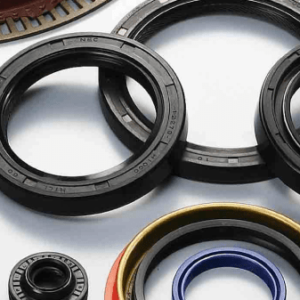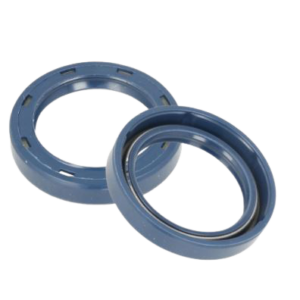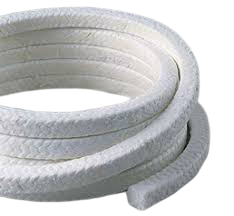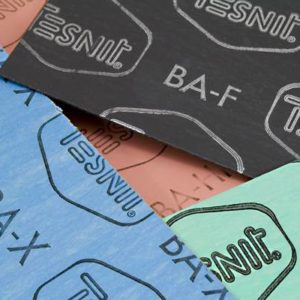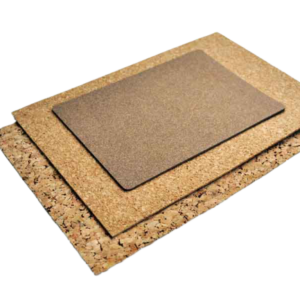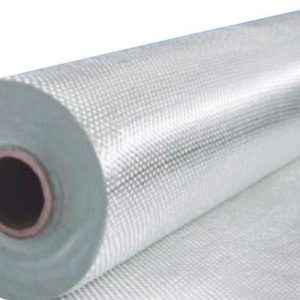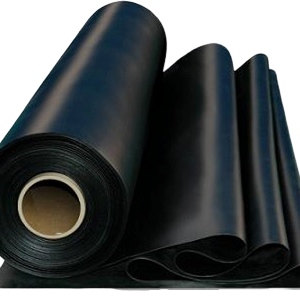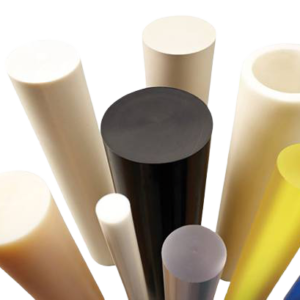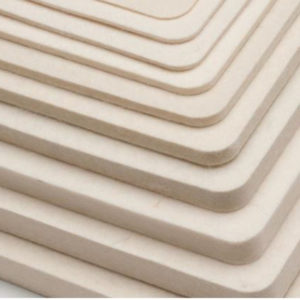OIL SEALS
Oil seals are intended to seal the openings between the rotating and static components or between components that are in mutual motion. They are used to retain lubricants, to protect against dirt, to separate liquids or gases and to withstand pressure differences.
O RINGS
O rings are round pressed rings of different diameters and thicknesses. They have wide application in sealing technique due to their simple shape, high sealing ability and easy installation.
SEALING BRAIDS
Sealing braids are used to seal doors on industrial furnaces, boilers, pipes, low-pressure, dry seals, in metallurgy, coke ovens, the glass industry, paper industry, food industry, chemical and petrochemical industries, refineries, electric power plants. We offer graphite, Teflon, glass, cotton and acrylic braids of square or circular cross-section. Depending on the purpose, they can be impregnated with silicone, Teflon, paraffin or other oils and graphite, and some types come for wire reinforcement and corrosion protection.
SEALING PLATES
Klingerite or sealing plate is one of the most widely used sealing and insulating materials that is easy to process, cut and glue. Klingerite is a high-quality sealing material produced from organic and mineral fibers in combination with a special rubber. The most important characteristic of klingerite is its flexibility at high temperatures. It adapts to changes in the material it comes in contact with, vibrations and other mechanical loads. Klingerite seals have a long service life. We offer plates for water, oil and temperature, in dimensions from 0.5 mm to 5 mm.
RUBBERIZED CORK
Due to its longevity, elasticity and flexibility, rubber cork is an excellent sealing material. Most types of cork insulation have good resistance to contact with liquid fuels, oils, gas, grease, water, many chemicals and the like. Cork is used in almost all areas of the household, and at the same time meets the needs of commercial and business premises, as well as in areas where hard floor coverings are needed. It has excellent thermal and sound insulation, vibration insulation and load transfer. Anti-allergic and antistatic material and a comfortable and warm floor covering with easy cleaning and maintenance. We offer in sizes from 2 mm to 5 mm.
FIBERGLASS
Fiberglass is an industrial canvas produced on the basis of compact incombustible glass fibers. It is characterized by exceptional strength, elasticity and resistance to thermal and chemical influences. It is used in the manufacture of various insulation elements for refrigerators and ventilation systems, protective clothing and thermal insulation of cables. We offer in dimensions from 2 mm to 3 mm; heights of 100 mm, 200 mm and 1000 mm (with and without aluminum).
TECHNICAL RUBBER
Technical rubber is a highly adaptable industrial material that is easy to cut, bend and shape. Depending on the composition, technical rubber is characterized by resistance to water, weathering, temperature and ozone. It is also resistant to weak acids, alkalis, solvents and mineral oils, as well as oil and oil derivatives.
The choice of a particular type of tire depends on: place of use, temperature, purpose and expected life.
The chosen material is crucial for the ability and reliability of functioning. The right material, adapted to all working conditions, and the shape of the seal determine the integrity of its operation.
With us you can find technical rubber of different characteristics and classifications, in a roll or plate.
WE OFFER:
- SBR (Synthetic rubber)
- NR (Natural rubber)
- NBR (Acrylonitrile butadiene rubber)
- EPDM (ethylene-propylene-diene rubber)
- CR (Chloroprene, neoprene rubber)
- VMQ; MVQ (Silicone rubber)
- FPM (VITON) rubber
Since there are a large number of materials and the possibility of changing their properties, customers with less experience in choosing seals should ask us for advice before determining the material. For every inquiry, professional and friendly Astraprom employees will give you an answer.
Basic characteristics of tire types:
SBR – synthetic rubber is a synthetic rubber resistant to wear, water, salts and weak acids, and is also characterized by resistance to abrasion and aging of the material. Due to the higher amount of styrene, butadiene belongs to the harder rubber and is less elastic. It is poorly resistant to weather conditions, oil and fuel. It is used to make rubber products such as natural rubber. It is widely used in the automotive industry as well as in the manufacture of rubber soles. Temperature range: from -40 ° C to + 250 ° C
NR – natural rubber is characterized by above-average tensile strength and elasticity (up to 500%) which makes it resistant to abrasion, hot and cold water, ammonia, ethylene glycol, dilute acids and alkalis. It is not resistant to oil and organic oils. Its resistance to high temperatures and atmosphere is limited. It is used for the production of shock absorbers, tires, metal elements, pads, membranes, bellows, valves, plugs and couplings of various seals. Temperature range: from -50 ° C to + 80 ° C
NBR (acrylonitrile butadiene) rubber is resistant to mineral oils, fats, liquid fuels and aromatic solvents, vegetable oils and dilute acids and alkalis. The largest application in the automotive industry for the production of oil shaft seals, “O” seals, cuffs, various sealing elements, pipes, bellows, membranes and all other products that require resistance to swelling in oils. Temperature range: from -40 ° C to + 130 ° C
EPDM rubber (ethylene-propylene-diene) is characterized by good resistance to wear, aging, low and high temperatures, chemical solutions, acids, alkalis and steam. It is used to make moving pulleys, seals, tubes for washing and drying machines, dishwashers, radiator seals, cables, tubes for car cooling systems, and many other molded products that require high resistance to the weather. It is resistant to UV radiation and temperatures ranging from -45 ° C to + 150 ° C.
CR – chloroprene rubber also known as neoprene rubber has good mechanical strength and resistance to water and aging. It is characterized by high resistance to the atmosphere and weather conditions. It is moderately resistant to oils and fuels. The specificity is also its property of adhesion to various substrates. It is used in the manufacture of various seals, bellows, propellers and brushes for air conditioners, gas pipes, engine exhaust pipes, diaphragms, conductors and all other products that have special requirements for resistance to atmospheric influences. Temperature range: from -40 ° C to + 110 ° C
VMQ or MVQ – silicone rubber is resistant to mineral oils and fats, and has excellent resistance to aging and ozone. It is most commonly used in the chemical, food and pharmaceutical industries. The standard color is red. It is not resistant to boiling water (100 ° C) and acids. It is poorly resistant to stretching, tearing and wear. Temperature range: from -60 ° C to + 230 ° C
FPM (VITON) rubber has excellent thermal and chemical resistance to oils and solvents. It is resistant to permanent deformation, to mineral oils, animal and vegetable fats, solvents and fuels. Temperature range: from -40 ° C to + 250 ° C.
TECHNICAL PLASTICS
Teflon
Teflon is used in situations where low friction is required, in aggressive and toxic fluids and high temperatures in the chemical, petrochemical, food and pharmaceutical industries, in water purification plants, etc. It is used to make valves, filters, pipelines, sealing elements. It has a very high melting point and is opaque. It is used in the form of a foil for sealing water and gas pipes, as a surface layer for pans and other non-stick containers.
Polyamide (PA)
Solid operational technical plastic with excellent resistance to impact loads and wear. Resistant to oils, grease and gasoline. It is used for the production of gears, rollers, coupling elements for eccentrics, sealing rings, screw elements, sliding elements and other elements exposed to impact stress.
Polyethylene (PE)
PE is one of the most used types of plastic. They are often used as a building material for children’s playgrounds, and are also widely used in various other industries. One of its applications is in the manufacture of pipes and water couplings. It is used for bearings, elements exposed to sliding friction, groove lining, etc. It is extremely resistant to wear from sharp objects (coke, crushed stone). Satisfies at high speeds and lower pressure. It has excellent impact resistance, high mechanical strength and high resistance to chemicals. They can be used in the temperature range from -40oC to + 80oC.
Polyacetal (POM)
Polyacetal is a type of technical plastic that is characterized by high strength and toughness. It is resistant to stretching and durable at very high and low temperatures. Resistance to moisture and chemicals (Gasoline, Diesel, Biodiesel, Methanol, Ethanol, etc.…) POM is one of the strongest and hardest plastic materials with a long service life.
Polypropylene (PP)
Polypropylene is a thermoplastic “additional polymer” of a combination of propylene monomers. It is used in a variety of applications to include packaging for consumer products, plastic parts for a variety of industries, including the automotive industry and special devices such as live hinges and textiles. Due to its outstanding resistance to chemicals, it is widely used in the chemical industry for elements exposed to lower stresses. It has the ability to digest. You can order all types of technical plastics through us.
TECHNICAL FELT
Technical felt is one of the oldest textile industrial materials. It is based on pressed wool fibers, and in some types with a lower proportion of cotton. It withstands temperatures from -50 to + 80 ° C, and short-term up to 120 ° C. It is resistant to tearing, and due to bending it returns to its original shape. It is glued and attached to almost any substrate, and is cut with excellent shaping precision. It is used for the production of seals and technical articles, thermal insulation, protection and coating,…


